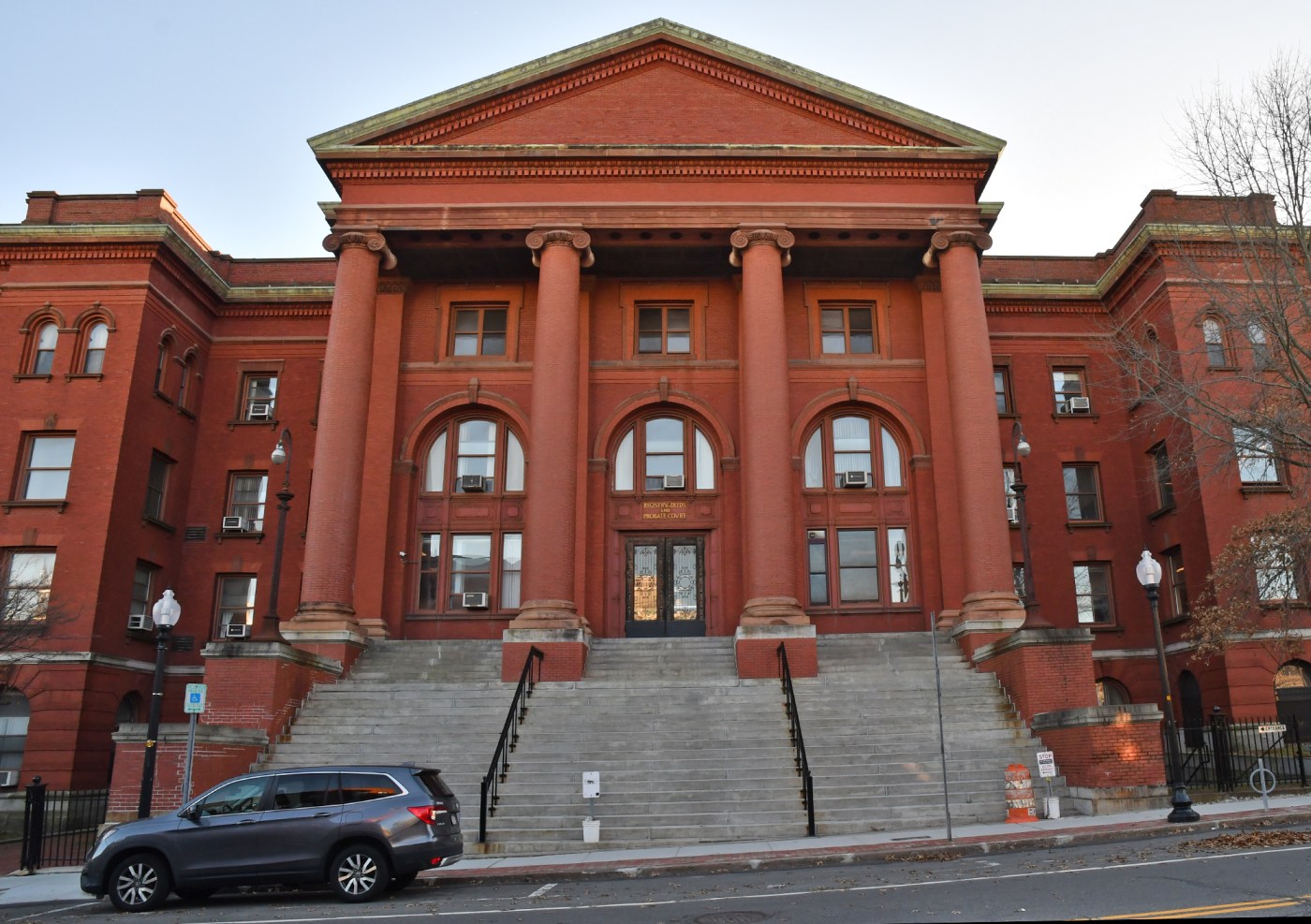
Overflow shelter at old Cambridge courthouse receives $173K in renovations
Gov. Maura Healey’s administration pumped $173,000 worth of upgrades into an old courthouse in Cambridge that is serving as an overflow shelter for homeless families and pregnant women, including newly-arrived migrants.
The money spent on the building, which also houses the Middlesex South Registry of Deeds, represents only a fraction of the $35 million state officials reported spending on the emergency assistance program between Jan. 29 and Feb. 8, according to a report released Monday.
Rep. Mike Connolly, a Cambridge Democrat whose district encompasses the old courthouse, said the renovations to the shelter were “clearly necessary items.”
Cambridge has largely been spared of housing homeless families and migrants in hotels and motels like other parts of the state, Connolly said, and the chance to use the old courthouse was an opportunity to “step up and do what we can to help serve this population.”
“Cambridge had been underrepresented among that element of the program in part, I think, because our hotels tend to be pretty expensive,” he told the Herald. “This was really an opportunity for us to do our part because there’s many communities where they have their hotels booked up with shelters.”
The building once housed probate and family courts but those moved to a different location in 2020, and the side of the structure being used as a shelter was largely left untouched for three years. Discussions between Healey and Secretary of State William Galvin’s office about the courthouse at one point centered on the state of the building, which was constructed in 1870.
The upgrades include nine new toilets and sinks, additional fire safety lights, extra fire extinguishers, portable fire alarms, a “general deep cleaning,” carbon monoxide monitors, fixing leaky pipes, and turning on the water, a spokesperson for the Executive Office of Housing and Livable Communities said.
A temporary wall with a fire door was also added to separate the half of the building that is being used as a shelter space from the registry, the spokesperson told the Herald.
A trailer shower has been set up outside the shelter for guests after MIT and Bunker Hill Community College stopped providing access to their own showers, Cambridge Housing Liaison Maura Pensak said.
The renovations were the result of an inspection by Cambridge Inspectional Services and the Cambridge Fire Department before the shelter opened on Dec. 22, according to Galvin’s office. Work started around the time Healey’s office asked the secretary of state’s office to use the space late last year, Galvin spokesperson Deb O’Malley said.
“When the governor’s office asked to use the building, they were advised that significant work would be needed to house people in it, as the space formerly occupied by the probate court had been vacant for some time. For instance, the plumbing had been turned off in the portions of the building not in use,” O’Malley said.
Hours for the shelter were extended from 7 p.m. to 6 a.m. to 7 p.m. to 9 a.m. but city officials in Cambridge said they are pushing the state to make the site a 24/7 location similar to the shelter at the Melnea Cass Recreation Center in Roxbury.
Turning the overflow shelter into a 24/7 operation every day would give the roughly 200 people sleeping overnight a place to stay during the day, Pensak said. The shelter already operates 24/7 on the weekends, holidays, and snow days.
The Registry of Deeds, which is open from 8 a.m. to 3:45 p.m. Monday through Friday, operates in a “totally separate” part of the building and has a separate entrance from the shelter, Pensak said. Extending shelter hours “does not … impact the business of the registry,” Pensak said.
People have found their way to libraries and churches during the day but not every spot has the capacity to open their doors to hundreds of people, Pensak said.
Families who used to travel to shelter intake centers in Allston and Quincy can no longer rely on state-provided vans or buses after officials stopped running them because the centers were “overwhelmed,” Pensak said.
“Although we’ve worked with the state to figure out where families can go, there isn’t one site in our city that can handle people being there every day,” Pensak said. “It’s really a challenge for folks. The state did just increase the hours … which helps, but we are going to continue to push for it to be 24/7.”
A signed agreement between the Healey administration and the secretary of state’s office dictates the hours and many of the operational responsibilities. Extending the shelter’s morning dismal time to 9 a.m. was “done to accommodate children in school and their school start times,” O’Malley said.
“This is expected to be the schedule for the remainder of the school year,” she said.
Healey turned to the state-owned building as the number of people seeking emergency shelter under Massachusetts’ right-to-shelter law exceeded her self-imposed limit of 7,500 families. It was not the first time the first-term Democrat had done so nor would it be the last.
The Cambridge shelter can serve up to around 70 families and as of Tuesday there were 60 families residing at the old courthouse, according to the Executive Office of Housing and Livable Communities.
There were 748 families on the waitlist for emergency shelter as of Monday, according to the state’s housing department. Nearly 7,530 families were in emergency shelters across the state as of Monday, according to state data.


